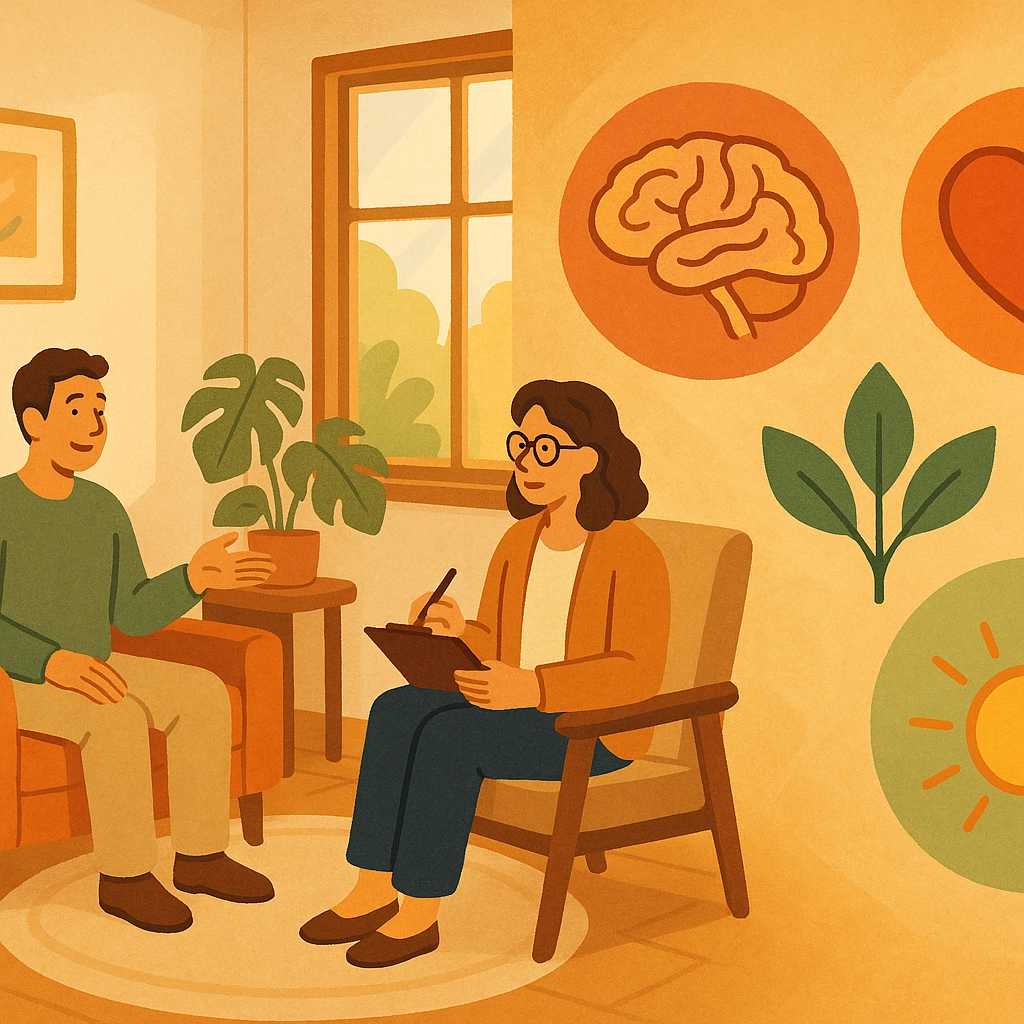Finding Balance: How a Holistic Approach to Counseling Supports Your Mental, Spiritual, and Physical Well-Being
- Eugene Whitten
- Sep 14, 2025
- 5 min read
When we talk about living a balanced life, we often imagine juggling work, family, health, and maybe squeezing in some relaxation. But balance goes deeper—it involves caring for our minds, bodies, and spirits as parts of a connected whole. This is where holistic counseling comes in, offering support that addresses every piece of your well-being puzzle.
What Is Holistic Counseling?
Holistic counseling is an approach that sees you as a complete person, not just a set of symptoms or challenges. Rather than focusing solely on thoughts or emotions, holistic counselors look at all the areas of your life—mental, physical, spiritual, and environmental—to help you thrive. This approach gives weight to every part of your experience and works to uncover how each area affects the others.
In practice, a holistic counselor might incorporate a mix of traditional talk therapy, mindfulness, breathwork, nutrition, movement, and even guidance for strengthening your spiritual connection. The ultimate goal? Helping you feel more resilient, content, and balanced in everyday life.
The Four Pillars of Holistic Well-being
At the heart of holistic counseling are four fundamental pillars that shape your overall health:
1. Biological
Physical health has a big influence on mental and emotional well-being. If you’re not sleeping well, eating right, or moving your body regularly, it’s natural to feel out of sorts emotionally. Holistic counseling encourages physical care through:
Healthy eating habits
Physical activity
Good sleep routines
Managing chronic health issues
2. Psychological
This is the core of most therapy: understanding your emotions, beliefs, and thought patterns. Holistic counselors help you:
Recognize negative thought cycles
Manage anxiety, depression, or trauma
Build emotional resilience and coping skills
3. Environmental
Your surroundings—both physical and social—matter. That could mean your living space, work environment, or the people you interact with. Holistic work here might include:
Navigating difficult relationships
Setting healthy boundaries
Creating peaceful, supportive spaces
4. Spiritual
Spiritual health doesn’t require a specific faith. It’s about your sense of purpose, connection, gratitude, and inner peace. Holistic counseling might explore:
Meditation or mindfulness practices
Reflecting on personal values and meaning
Exploring life transitions and big questions

Benefits for Mental Health
Research keeps showing that holistic counseling makes a real difference for mental health. It’s especially helpful for people dealing with anxiety, stress, depression, and issues with focus or addiction.
By highlighting the mind-body connection, holistic counseling teaches you to notice and work with physical signals linked to your emotions. Rather than just reacting to stress or negative thinking, you’ll learn tools to self-regulate—like mindful breathing, gentle movement, or grounding techniques.
A 2019 study with teens found that a one-month holistic stress management program significantly lowered anxiety and depression compared to a control group. Participants also reported more self-awareness and better ability to handle life’s challenges.
Key mental health benefits include:
Emotional regulation
Improved focus and memory
Better communication skills
Support for trauma recovery
Prevention of relapse for addictions
How Physical Well-being Fits In
Our bodies and minds are on the same team. If you’re physically well, you’re more likely to feel emotionally steady—and it works the other way, too! Holistic counseling uses simple habits to help both areas:
Mindful movement: Gentle exercise (like yoga, walking, or stretching) boosts mood and focus. Research shows exercise can be as helpful for depression as some medications.
Breathwork: Slow, deep breathing calms the nervous system. One 2017 study found diaphragmatic breathing improved stress response and cognitive function.
Nutrition and sleep: What you eat and how well you sleep shape your energy, mood, and mental clarity. Better nutrition links to a lower risk of depression, according to a study published in Frontiers in Nutrition.
Holistic counselors can work with you to troubleshoot routines, build in movement, or gently explore connections between diet and mood. Even small adjustments can create ripple effects throughout your life.

Spiritual Support and Meaning-Making
Feeling lost or uninspired can impact mental health as much as any daily stressor. Part of holistic care is helping you find meaning—whether that means exploring spirituality, reconnecting with personal values, or building a sense of purpose in your relationships and work.
Holistic practices often include:
Mindfulness and meditation (both spiritual and practical)
Journaling or creative expression
Time in nature
Support with major life transitions
Yoga and meditation, for example, bridge the gap between spiritual growth and mental health. One review found Hatha Yoga could help treat addictions in women, and trauma-informed yoga is effective for people recovering from difficult experiences. You don’t need to “believe” in yoga for these practices to help—they’re about grounding, presence, and feeling more in tune with yourself.
The Mind-Body-Spirit Connection
Everything in life is connected. When stress piles up or emotions run high, your body lets you know—stomach aches, headaches, muscle tension, or trouble sleeping. When you nurture your body with sleep, rest, movement, and healthy food, your mind can process challenges more calmly.
Holistic counseling is different from old-school models that focus only on “fixing” symptoms. Instead, it’s about long-term, sustainable healing. Addressing life’s root causes—chronic stress, poor nutrition, lack of meaning, or sleep issues—helps you heal on every level.
What to Expect in Holistic Counseling
In a holistic counseling session at Abundant Life Counseling & Consulting LLC, your therapist will get to know the complete you. They might ask about:
Your daily routines (sleep, meals, movement)
Relationships, support systems, and triggers
Your values, beliefs, and what gives your life meaning
Any physical health concerns
Counselors often weave in practical tools—like breathwork, grounding, or gentle movement—alongside more traditional talk therapy. There’s plenty of space for humor, honesty, and experimentation. You’re always in the driver’s seat, and your comfort comes first.
Want to explore holistic counseling for yourself or your family? Book a session with us here. We’re happy to walk alongside you on your journey toward more balance, peace, and fulfillment.

Real-Life Results and Evidence
The best part? Holistic methods are backed by a growing body of research:
Family interventions: In one randomized controlled trial, simple family activities improved communication and emotional bonds.
Chronic pain: Mind-body techniques have cut pain, stress, and reliance on medication for many with persistent physical symptoms.
Long-term change: By addressing life’s underlying patterns (not just surface issues), clients experience more lasting improvements in mood, resilience, and daily functioning.
Instead of treating problems in isolation, holistic counseling helps you build habits and skills that support every part of your life. The results are often more meaningful, sustainable, and deeply rewarding.
Ready to discover a new kind of balance? At Abundant Life Counseling & Consulting LLC, we believe that supporting your mind, body, and spirit together is the key to flourishing—not just surviving. Reach out and let’s start your holistic wellness journey.



Comments